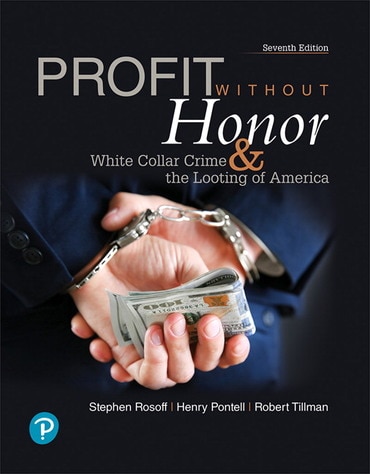Switch content of the page by the Role togglethe content would be changed according to the role
Profit Without Honor: White Collar Crime and the Looting of America, 7th edition
Published by Pearson (January 28, 2019) © 2020
- Stephen M. Rosoff
- Henry N. Pontell
- Robert Tillman
eTextbook
per month
$111.99
Need help? Get in touch

Digital Learning NOW
Extend your professional development and meet your students where they are with free weekly Digital Learning NOW webinars. Attend live, watch on-demand, or listen at your leisure to expand your teaching strategies. Earn digital professional development badges for attending a live session.

